BY GREGORY GONDWE
Portuguese firm – Mota-Engil had been a dominant force in Malawi’s construction industry. This was the firm that was winning all juicy infrastructural projects, and this was allegedly facilitated by the ousted Democratic Progressive Party-led administration. The trend could be traced back to the time President Bingu wa Mutharika took power in 2004 up to the time that he died in 2012… When his young brother Peter Mutharika took control in 2014, he picked from where his brother left off until the time that he vacated the seat of power in 2020.
In 2018, when the younger Mutharika was in power, a leaked official report showed that Mota-Engil was seen as the Malawi presidency’s sweetheart contractor as it had almost 10 times the value of government road-building contracts as its nearest rival.
When Mota-Engil Ruled
A 2018 report by the Roads Authority (RA) showed that the Portuguese-based multinational engineering firm had road contracts in Malawi with a combined value of K142-billion Malawi ($135.6 million).
By contrast, the second most-favoured company, Zhajoung of China, was engaged in government road projects worth just K14.9 billion ($14.2 million).
A high-ranking executive from a rival civil engineering company, who asked to remain anonymous, said the feeling among competitors was that Mota-Engil was the principal beneficiary of Malawi government tenders.
“We cannot protest the conduct of government when it comes to awarding these projects to Mota-Engil because the construction industry in Malawi is guided by politics,” the executive said.
At the time, Mota-Engil used to argue that it was merely a bidding and contracted party.
Mota-Engil’s public relations officer, Thomas Chafunya, would always refer the media to Malawi Government saying, “they are the contracting authority and owners of the projects on behalf of Malawi.”
At the time, the RA’s public relations manager, Portia Kajanga, insisted that the authority follows the Public Procurement Act.
Kajanga said all donor-funded projects must follow donor requirements and guidelines, meaning that “the RA follows transparent procurement systems – there is no bias in awarding of contracts”.
Kajanga also said the RA manages numerous projects under the government’s recurrent and development programmes.
Under the development programme, the authority was managing 10 contracts, five of which were being executed by Mota-Engil and the rest managed by different contractors.
According to the Roads Authority report, Mota-Engil had been contracted to build the Thyolo-Makwasa-Thekerani-Makhanga road, funded to the tune of K27.3 billion ($26.8-million) by the Malawi government, the Kuwait Fund, the Arab Bank for Economic Development in Africa, the Saudi Fund and Opec.
Construction on the 82km road began in August 2016 and is expected to be completed next year.
The company was also scheduled to build:
- The 95 km Lilongwe Old Airport-Kasiya Spur Road, costing over K39.6 billion (R670 million), with Malawi government funding. The project, which was scheduled to take up to 95 months, commenced in January 2015.
- The 75 km Liwonde-Mangochi road is worth K29.9 billion (R450 million), funded by the African Development Bank.
- The government-funded 75 km Njakwa-Livingstonia Project, would cost K39 billion (R670 million).
- The 4.4 km highway, from Parliament to the Bingu National Stadium, would cost MK6.6 billion (R90 million). The funding is from the Malawi government, through the Road Fund.
Mota-Engil’s nearest rivals were Zhajoung of China, which the RA report said had work worth MK14.9 billion; China Railway Bridge 5 – MK9.8 billion, ($9.1 million); and Malawian-owned Fargo (MK9.2 billion ($9.07).
The generous treatment of Mota-Engil follows repeated controversies over its relationship with former president Bingu.
The brothers were very close. Local media reported that Bingu left Peter K74 million in cash in his will, as well making him co-executor of his estate. He was the key figure in the Bineth Trust, Bingu’s property vehicle.

The Nation newspaper reported that Bingu died in April 2012 “at the height of whispers regarding his relationship with Mota”.
The company reportedly built a villa in Portugal for him called Villa Casablanca, as well as the mausoleum of former First Lady Ethel Mutharika at his Ndata farm in Thyolo, where he was also buried.
The Nation quoted the company as saying these projects were “donations towards a cause”.
Mota-Engil came under the spotlight in 2012, when The Nation newspaper reported that it had seen three cheques amounting to K13.5 million (about $132,500 at the time) which the company had deposited in Bingu’s personal bank account at the Capital City branch of Standard Bank in Lilongwe. It gave the account number 0140001886701.
The newspaper reported that the cheques were drawn against Mota-Engil’s Engenhara Eco FMB current account and carried the signature of Mota’s managing director, Antonmarco Zorzi.
Zorzi was quoted as saying that the payments were for copies of The African Dream, Bingu’s book, which he had bought at auction at the book’s launch in February 2011.
The Nation countered that the cheques had been deposited a year earlier than the launch, in March 2010.
Mota’s perceived ties with Bingu were again highlighted in June 2016 by the veteran MP for Mzimba West, Harry Mkandawire, who told the Malawian parliament that Bingu had salted away K61 billion in assets offshore. In 2004, when he became president, Bingu declared K250 million in assets.
Exit Mota-Engil Enter Chinese Firms
With the coming in of the Malawi Congress Party (MCP) led Government, so did the change of fortunes for Mota-Engil. The most prominent one was when it lost the US$84 million contract that included the design, restoration, and upgrade of Marka-Bangula railway line in the Southern tip of Malawi which was given to a Chinese firm.
Chinese contractor Shandong Luqiao Group Company Limited is undertaking the reconstruction of M1 Road in the capital, Lilongwe. The company would do reconstruction and extension of a 9.5 km stretch of the road which is being upgraded from two lanes to four lanes, with independent bicycle lanes and sidewalks on both sides.
The project, which is funded by a China Aid grant, commenced on December 28, 2021, and it has created employment for over 200 Malawians who are now able to look after their families.
Other Chinese companies that are carrying out construction works in Malawi include China Civil Engineering Construction Corporation (CCECC) and China Railway 20th Bureau Group Co., Ltd. (CR20).
CCECC is upgrading a 3.9km stretch of road in the capital from 2 lanes to 6 lanes to help decongest the city, while CR20 is constructing the 72 km Bangula-Nsanje-Marka railway line, according to the Ministry of Transport and Public Works records.
The government indicated that the decision to award the Marka-Bangula railway contract to China Railway 20 Bureau Group Corporation followed multidisciplinary issues that the Portuguese construction conglomerate is facing and now answering corruption charges by the Anti-Corruption Bureau (ACB).
The initial grant agreement was revoked in September 2021 due to a complaint claiming potential anomalies and corruption in the procurement process. A significant deviation was detected in the bidding document during evaluation. These deviations violated the provisions of the Public Procurement and Disposal of Assets Act and the Bidding Document for this contract.
Mota-Engil, D&M, China Railway and China Civils expressed interest in the contract when the bidding process reopened in January 2022. Subsequently, the Ministry of Transport and Public Works chose China Railway 20 Bureau Group Corporation. The company provides infrastructure construction services and builds railways, highways, bridges, tunnels, subway stations, roadways, and related projects.

The 72-kilometre Marka-Bangula project will connect Malawi to the Port of Beira. It is behind schedule due to the delays and will also cost K20 billion (US$24.4 million) more than initially planned.
The Minister of Transport and Public Works Jacob Hara justified the increase in cost, citing a change in the design of the railway line to align it to Mozambican standards.
As if this was not enough, in March 2021, Malawi Government terminated a K5.1 billion contract with Mota-Engil to build the Rumphi-Nyika-Nthalire-Chitipa Road.
Apparently, the Roads Authority had been given a K90 billion bill by the Portuguese contractor for infrastructure construction which it disputed, saying it is on the higher side. RA engaged the Roads Fund Administration to determine the exact amount owed to the engineering company Mota-Engil.
The then Roads Authority chief executive officer Engineer Emmanuel Matapa said the first phase of the road’s construction, covering 20 kilometres, was launched by former president Peter Mutharika in 2018, and only six kilometres was partly constructed with Mota Engil attributing the development to Capital Hill’s failure to provide the contractor with resources.
Matapa said there were “some contractual disputes” which resulted in the termination of that 20-kilometre contract.
The Portuguese firm wrote the Roads Authority demanding the settlement of a K90 billion debt in form of project dues and interest on delayed payments, mostly dating back to 2008.
The company claims that it has halted several ongoing projects, including procurements, due to a lack of funds.
In a letter addressed to the Roads Authority, Mota-Engil indicates that the authority owes it the money in form of project dues and interest on delayed payments on some projects.
The letter signed by the engineering giant’s managing director, Nuno Antunes, states that most of the arrears date back to 2008.
Antunes disclosed that in view of the development, the company had halted some projects as it is not able to finance several activities including procurements.
But Roads Authority said that though they believe that the contractor is owed money, the amount may not be as claimed because payments have been made in the past couple of months.
In September 2020 Just three months after being in power, the then Malawi’s Minister of Transport and Public Works, the late Sidik Mia, announced Government’s plans to construct a $50 million dual carriage road from Lilongwe to Kasungu. The minister said this in an interview when President Chakwera toured the Area 18 interchange project, which was being constructed by Mota-Engil.
But Government indicated that the construction works for the dual carriageway would be funded by a Chinese Government grant.
Last year in March, Malawi signed a memorandum of understanding (MOU) with China on the Belt and Road Initiative (BRI) cooperation in Lilongwe, becoming part of the multinational project.
At the signing ceremony, Malawi’s Minister of Foreign Affairs Nancy Tembo pointed out that joining the BRI will provide new impetus for cooperation between the two countries.
“Malawi Government remains committed to strengthening its relations with the People’s Republic of China at both bilateral and multilateral levels on matters of shared interests,” said the minister.
Chinese ambassador to Malawi Liu Hongyang said China stands ready to link the BRI with Malawi’s 2063 Vision and contribute to Malawi’s building of an inclusively wealthy and self-reliant nation.
Over 170 countries and international organizations have so far signed BRI cooperation agreements with China.
Tembo applauded Liu’s contributions to the development of China-Malawi ties since his appointment in August 2018.
She hailed the Chinese envoy for facilitating several infrastructural projects in Malawi through grants and concessional loans during his tenure of office.
She listed some key infrastructural projects including the Lilongwe Water Program worth 67.7 million U.S. dollars concessional loan, the construction of a dual carriageway in Lilongwe worth 50 million dollars grant and a 15 million dollars grant for the construction of 5 community technical colleges in the country.
“Ambassador Liu has contributed greatly to the Malawi-China relationship since his appointment in 2018,” Tembo said.
China was Brought in by DPP
Although the Democratic Progressive Party administration severed ties with Taiwan and entered a diplomatic relationship with China, it was only those projects that the Chinese offered in terms of grants that were being carried out by the Chinese firms. It is only now that even projects that would be locally financed or financed by other partners that are also being offered to Chinese firms.
A year after being in power in October 2015, President Mutharika announced multi-billion-kwacha projects financing from China for 7 priority projects; a mixture of construction and non-construction projects.
Mutharika announced the approval of three projects, that included the 300-Megawatt Kam’mwamba Coal Fired Power Plant, to cost an estimated US$667,232,814. The second project was the E-Government (National Identity) Project, where the Chinese Government approved the Fibre Backbone component of the project, which will lay the fibre optic cables to increase internet connectivity to an estimated tune of US$50 million.
The third project was the Chileka International Airport redesigning feasibility study and an Environmental Impact Assessment to an estimated cost of US$285,430,000.00.
Although not much has happened, at the time Mutharika announced that a team of experts will be visiting Malawi before the end of December 2015 to discuss the technical aspects with their counterparts on the 140 Km Tsangano – Neno – Mwanza Road– with a total cost of at US$169.4 million; the 129.5 Km Mangochi – Makanjira Road– with a total cost of estimated at US$151.7 million.
The other announced project was the upgrading of the Phombeya – Makanjira– Nkhotakota – Chatoloma 220 KV Power Line– estimated at US$189,298,285.00 and of course the Lilongwe Dual Carriage Way from Kanengo – Mchinji Roundabout on the M1 Road with the total cost of US$45 million.

Mutharika also announced that the Chinese Government agreed to disburse the two grants as follows: the first Grant was the construction of the Blantyre District Hospital and Cancer Centre in Blantyre at Kameza costing US$23 million; and the procurement of police vehicles for the Malawi Police Service costing US$2 million.
While the second Grant would take care of seven components that would include the construction of a Technical Teacher Training College costing $5 million; the construction of Community Technical Colleges costingUS$6 million; promotion of value-added activities for the Ministry of Industry and Trade amounting to $5 million; procurement of equipment and exchange programs for Professors/Lecturers at the Malawi University of Science and Technology at $2 million; procurement of office equipment and furniture for the Ministry of Industry and Trade amounting to $1 million; support for technical services for the Bingu National Stadium constructed with the support of the Chinese Government amounting to $1 million for; and construction of a new Ministry of Foreign Affairs Building amounting to $3 million.
With the involvement of the Chinese in most of Malawi’s development aspects, it was therefore a matter of time before they were to take over.
A year after the MCP-led Government was in power, Roads Authority Spokesperson Portia Kajanga announced that construction of the K6.6 billion Neno-Tsangano Road project is set to start by the end of that year and was to be implemented by China Geo-Engineering Corporation.
Outcry Over Chinese Monopoly
Some civil society organisations have questioned the dominance of Chinese firms in different projects in the country. One of the civil society organisations, the Centre for Democracy and Economic Development Initiatives (CDEDI) exposed the Chinese monopoly by producing a list which included:
· Jenda-Edingeni road in Mzimba District awarded to China Railway No.5 Engineering Group Co. Ltd
· Karonga – Songwe (M1) Road Rehabilitation awarded to Zhejiang Provincial Transportation Engineering Construction Group Co, Ltd 3.
· Mzimba Mzarangwe Road awarded to Zhejiang Communications Construction Group Co.,
· Ntchisi – Malomo Road awarded to China Civil Engineering Corporation

· Kenyatta Drive & Sharrar Street awarded to China Civil Engineering Construction Corporation (Malawi)
· Ntcheu-Tsangano (From the Mwanza side) awarded to China Geo Engineering Corporation.
· Nsanje – Marka Road awarded to China Railway 20 Bureau Group Corporation
· Nsanama – Nayuchi Road; awarded to China Railway 20 Bureau Group Corporation
· Nsanje-Marka Railway Project awarded to China Railway 20 Bureau Group Corporation
· Lirangwe-Chingale-Machinga Road project awarded to China Civil Engineering Construction Corporation

In the statement, CDEDI’s executive director Sylvester Namiwa said, unlike their European counterparts like Mota-Engil, the Chinese use the cheapest bids as a strategy to enter the African market. Namiwa claimed the Roads Authority is now captured by political interests.
“The RA is heavily infiltrated by politicians to an extent that professionalism does not matter at all,” he said, accusing the body of being very strict in evaluating technical aspects of local contracts in terms of experience and qualifications but doing very little on these Chinese.
Stakeholders are protesting the award of a contract to a company that has failed to deliver on a lesser complicated project.
Protesting Chinese Firms
Civil society audits have exposed mediocrity in the workmanship of some Chinese firms. The audits have also established that two of the numerous Chinese firms that have been offered contracts were not supposed to be awarded the contracts if correct due diligence processes were followed.
China Geo-Engineering Corporation (CGC) and China State Construction Engineering Corporation (CSCEC) continue to enjoy lion’s share in the Malawian construction industry despite the companies being on the World Bank corruption and fraud blacklist.
The World Bank barred CSCEC and CGC for a period of 6 and 5 years, respectively, from participating in projects financed by the bank. The two companies did not bother to comment on the matter when contacted.
The two companies allegedly colluded with local companies in the Philippines to rig the bidding of road projects partly financed by the international financing institution, according to a World Bank investigation report in 2009.
CSCEC, China’s largest building contractor, was in 2004 also blacklisted by the Department of Public Works and Highways for six months over alleged violations of the procurement law.
CGC and CSCEC protested the World Bank decision, but the companies – along with others on the list who contested – lost their appeals at the bank’s sanctions board.
“Under the cartel’s system, bid prices were dictated by the cartel leadership; uncooperative bidders were forced out of the process before bids were submitted; winners were prearranged; and losing bidders, which in some cases participated to avoid displeasing influential members of the cartel, were compensated for their participation,” read the World Bank IVP 2009 annual report.
CGC for example has been having a deal to construct a 20-kilometre Ntcheu-Tsangano road at a project cost of K6.6 billion while CSCEC is the company behind the Karonga Water Supply project whose project cost is valued at $15.6 million.
The Karonga Water Supply project, however, is moving at a snail’s pace as mobilization of equipment was delayed and the project is wallowing in logistical challenges.
Protesting Chinese Firm Railway Contract

At an interface meeting with China Railway 20 Bureau whose attendance comprised traditional leaders, Councillors, and Police Officers the stakeholders made it clear that are they not satisfied with the procurement process to secure the services of CR20 whose work on the ground leaves a lot to be desired.
Addressing the council members where CR20 officials were also available, Senior Chief Malemia protested the option of the Chinese company.
However, as any other stakeholder truly means well for Malawians, the local leader was quick to say that people are not against or sabotaging Chakwera’s regime by delaying the railway project, but rather are protesting the contractor.
“We want the standard of the railway that was here during the time of our forefathers. As a matter of fact, we are only against the contractor who has failed to demonstrate outstanding expertise in his previous works,” Senior Chief Malemia said.
The exercising of a watchdog role on public projects has been facilitated by the human rights organisation Centre for Democracy and Economic Development Initiatives which believes that development is not a privilege but a human rights issue, therefore Malawians deserve the best.
CDEDI Executive Director Sylvester Namiwa has recently embarked on an inspection of public projects’ contractual agreements beginning with Northern Region Water Board and on Thursday, March 30 was inspecting contractual documentation at Roads Authority (RA).
Demonstrating that patriotism is not for only CDEDI, Namiwa has since been calling on all Malawians to make use of access to information by seeking clarity on how some contracts were awarded to different contractors.
The approach by CDEDI was not only necessitated by the presence of the law, but due to high cases of corruption in the procurement sector that has led to substandard public infrastructure, especially roads.
More Eyebrows Raised on Chinese Contracts

China Civil Engineering Construction Corporation, a firm contracted to relocate water pipes off Lilongwe’s six-lane Kenyatta Road project, will be paid twice for the same work. There is a fee for specifically relocating the pipes which are also already taken care of in the main road project, making transparency and governance experts raise eyebrows.

On the other hand, the government defended the arrangement.


China Civil Engineering Construction Corporation, while it is awarded a contract to relocate pipelines on the Kenyatta Road and Sharrar Street, it is also awarded the contract to upgrade the same Kenyatta Road and Sharrar Street to a six-lane road with the installation of streetlights-all costing about K20 billion.


The government published a notice of intention to award consultancy services and works contracts to five companies on April 11, 2022, and two of which were the same company: China Civil Engineering Construction Corporation.
Procurement number RA/ DEV/BT-MHG/2021-2022/02, shows that the company has been awarded a contract to upgrade 20 kilometres of Lirangwe- Chingale-Machinga Road (S139/7401) to the tune of K7,262,490,212.66 and the same company has also been awarded a contract for the capacity improvement of Kaunda Road (Bingu National Stadium Roundabout- Chendawaka Junction) under procurement number RA/DEC/ LLC/2021-22/06 at the cost of K8,552,953,381.26.
As if all this confusion is not enough, through Lilongwe Water Board Government also awarded China Civil Engineering Construction Corporation a contract to relocate water pipelines for capacity improvement of Kenyatta Road and Sharrar Street in Lilongwe.
Writing the Public Procurement and Disposal of Assets Authority on March 17, 2022, the Lilongwe Water Board asked for a No Objection to granting the award to the company under contract number LWB/W/KSR/22/1 with a contract price of MK5,242,933,311.64.
Bid opening minutes dated February 25, 2022, show China Civils was the fourth-lowest bidder at K5.2 billion. The other three lowest bidders were Victory Vision Construction at K3.4 billion, Malbro International Ltd at K4.8 billion and Project Group Ltd at K3.6 billion.
President Lazarus Chakwera launched this project in August 2021. It was supposed to be completed in 18 months, but there is no progress on the road.
Minister of Transport and Public Works Jacob Hara backed both the company and the government for awarding the contracts to one company saying each time a contractor bids for a job, they provide information that they have the capacity to handle such a job.
“The fact that they bid for a number of jobs and won multiple contracts means they provided bid securities for each project,” he said.
Hara also said the upgrading of 20 kilometres of Lirangwe- Chingale-Machinga Road and capacity improvement of Kaunda Road, are jobs that were tendered a while ago and thus the issue of one contractor with multiple contracts didn’t occur then as each bid is handled by a separate ad hoc evaluation committee.


But he warned that the government would not hesitate to terminate the contracts if capacity issues are identified.
“Should we see that the contractor has capacity issues during implementation, we will not hesitate to terminate the contract as we have done with other projects before,” Hara said.
He disclosed that the government is working on a policy to build capacity and empower local Malawian firms.
Chinese Firm Buys into Mota-Engil
It has, however, emerged that China Communications Construction Company acquired part of the Portuguese infrastructure group Mota-Engil in 2021.
The Chinese firm bought 23 per cent of Mota-Engil Group, which is Portugal’s largest public works group with business in Latin America, Africa and Eastern Europe, for EUR 171 million ($181.8 million).
This is clearly showing that the takeover of Mota-Engil stakes by a Chinese firm might not have changed anything in terms of control of construction projects in Malawi after all.

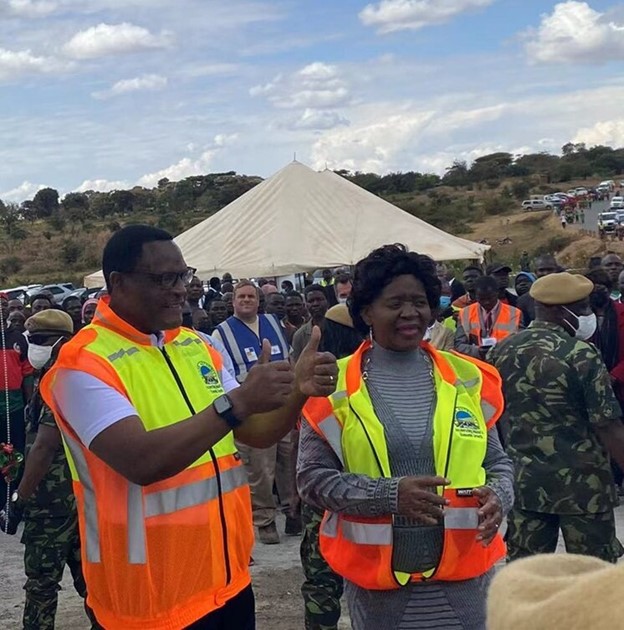

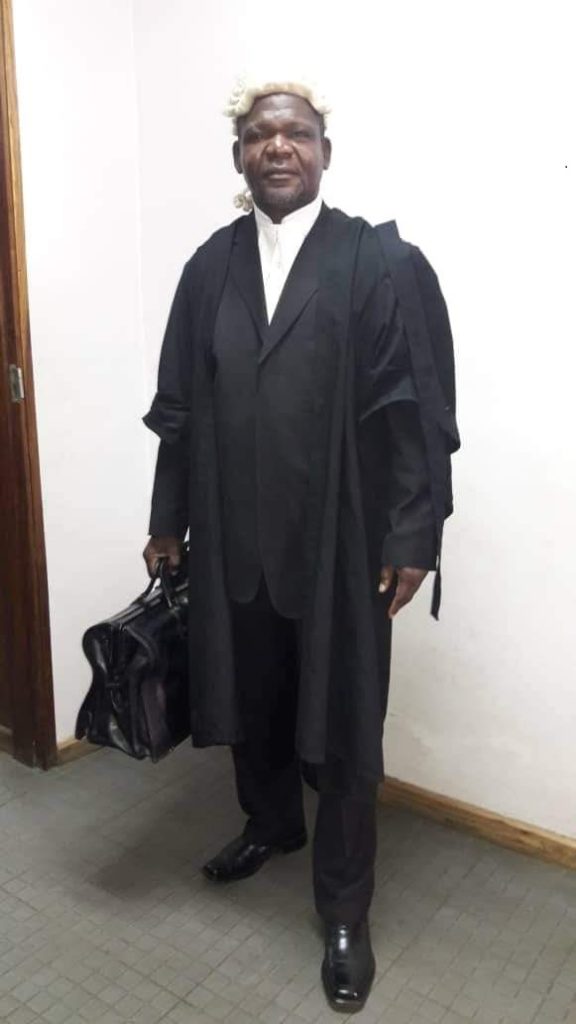
.jpg)
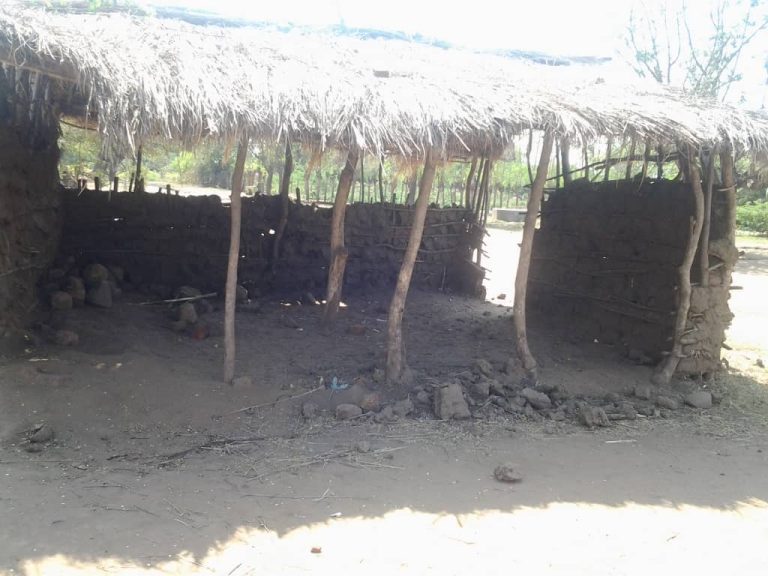
.jpeg)
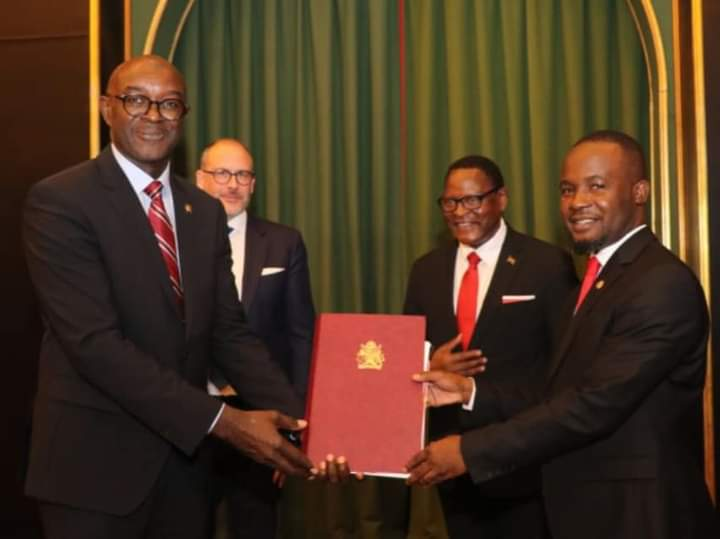
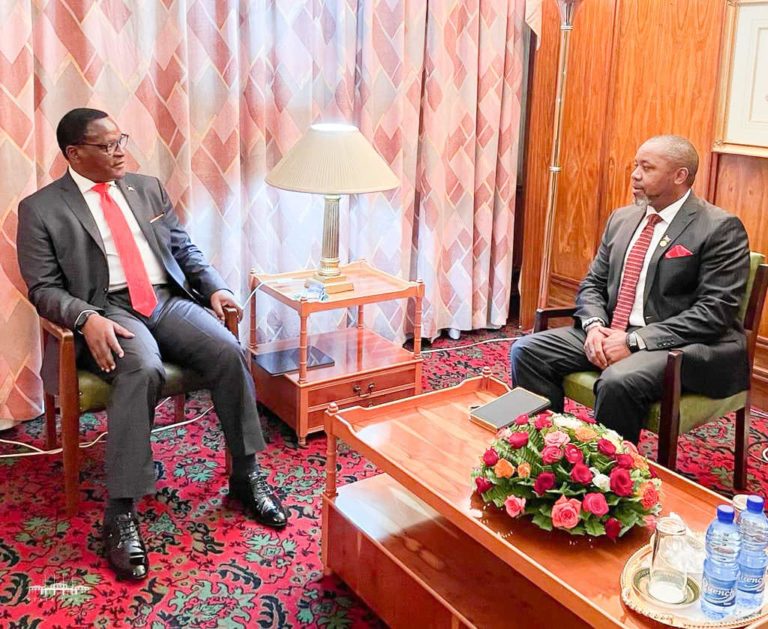
.png)
